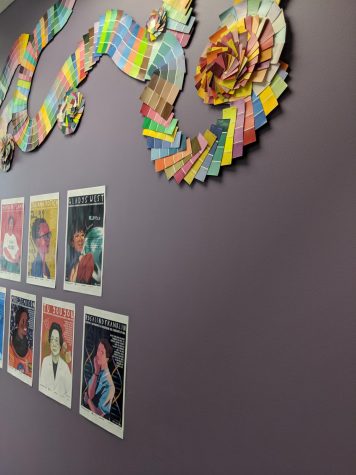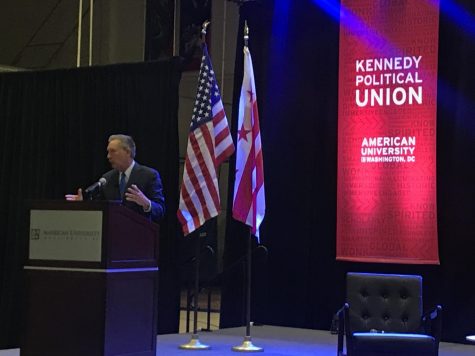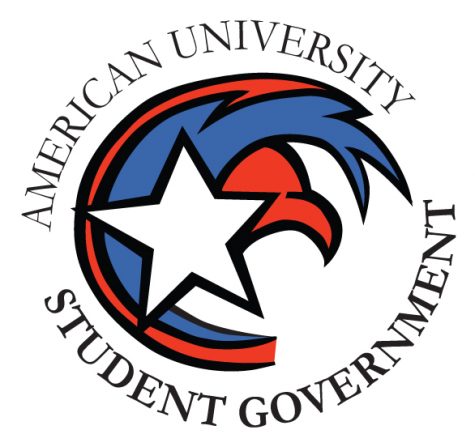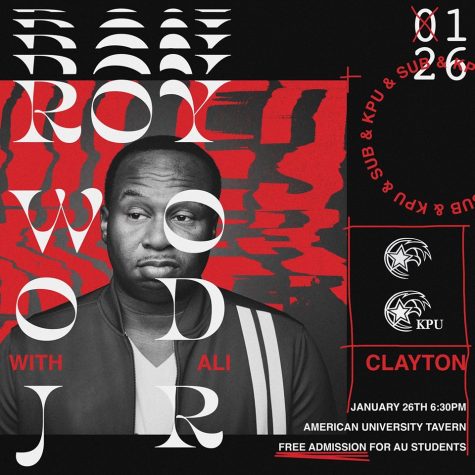Immigrants' Biggest Battle: Tuition – Undocumented America(n)
Early this summer, the Supreme Court is expected to decide on the legality of a program that could change the lives of over four million undocumented immigrants living in the United States.
The policy in question is Obama’s Deferred Action for Parents of Americans (DAPA) plan. DAPA is an expansion of the Deferred Action for Childhood Arrivals (DACA) executive order issued in 2012, which delays deportation and grants two-year work visas to undocumented immigrants who came to the United States as minors. To qualify, individuals must have lived in the U.S. for over five years, graduated high school or served in the military.
“When I left, out of all my friends I only told two or three, because on that kind of trip you don’t know if you are going to make it or not.”
Such legislation did not exist when Enrique Benavides, who graduated from American University in 2015, came to the U.S. illegally in 2006.
When civil war broke out in El Salvador in the 1980s, Benavides’ uncles and eldest brother immigrated to the U.S. without documentation. His brother married a U.S. citizen, became a citizen himself and petitioned for their mother to join him in the U.S. She arrived in 2005, but after six months without Benavides and the rest of her family, her mental health began to suffer. She returned to El Salvador and sought ways to bring Benavides to the U.S. legally. Because the process would have taken four years, Benavides’ family felt they had no other option but to bring him across the border illegally. He was 14 years old.
The family hired a coyote, a person who smuggles other people, to bring Benavides through Guatemala, Mexico and Arizona to Texas, but he wasn’t confident he would get to the U.S. without being caught and deported.
“When I left, out of all my friends I only told two or three, because on that kind of trip you don’t know if you’re going to make it or not,” he said.
Once Benavides finally got to Texas, he started high school right away. According to a fact sheet created by the Department of Justice, public schools cannot require documentation, so his legal status never caused any issues until it came time to apply to colleges.
While it is not illegal for colleges or universities to accept undocumented students, without a social security number it is much harder to pay steep tuition bills.
“Citizenship and immigration status are not factors in AU’s evaluation of students for admission,” Kelly Alexander, director of public relations at AU, said in an email. “Undocumented students are not eligible for need-based financial aid, but can be considered for competitive merit-based awards.”
But without that need-based aid, Benavides said that many students are on their own, left at a significant disadvantage.
“You have to work and study and use your personal savings,” he said. “Without that, it’s just not happening at all.”
In his case, thanks to a sympathetic admissions counselor, Benavides caught a lucky break. Normally, undocumented students apply as international students, but Benevides’ counselor allowed him to apply as a U.S. citizen because he had proof he was in the process of applying for a green card. This meant he would not have to pay the additional tuition fees that international students may incur.
Benavides wanted to go to AU because he fell in love with the District when he first visited and knew it was a good school for international relations. But without federal aid, it would be impossible for him to attend.
As a result, Benavides went back to El Salvador in 2010 to apply for permanent residency in the U.S. When he returned the following year, he reapplied for financial aid. This time he qualified for federal aid and loans and was able to attend AU.
While his story has a happy ending, Benavides was just one of over 1.8 million undocumented children living in the U.S. Of these children, over 60,000 graduate high school each year, but because of federal legislation and university policies, only 5 to 10 percent of them make it to college, according to the American Immigration Council, a think tank headquartered in the District.
Aside from exclusion from federal aid and higher tuition, undocumented students face other financial obstacles when applying to college. Financial literacy barriers often prevent undocumented college applicants from taking advantage of the few resources they have available, according to Martha Sanchez, a junior at AU and immigration justice activist.
She said that many undocumented students don’t fill out the Free Application for Federal Student Aid (FAFSA), a form that determines students’ eligibility for financial aid, because they know they don’t qualify.
“Many high school students, when they find out they don’t qualify for federal scholarships, they just don’t fill out the FAFSA in the first place, which can deprive them of going to a private university where you can get private scholarships,” Sanchez said.
Though there are hundreds of scholarships available to undocumented students, especially in states like California and Texas with large immigrant populations, Benavides said that finding the right one can be tricky. When he was applying to colleges, most of the scholarships he found were limited to students planning on studying a certain topic at a certain school, and he couldn’t find any specific to what he wanted to do.
“Anyone will step up and say ‘Dreamers have potential’ and ‘We will support them,’ but they don’t really do it financially.”
The College Information Center (CIC), affiliated with the District of Columbia Public Library, is one organization helping undocumented students find the resources they need to finance their education. The Center aids students in applying for scholarships specifically for immigrant students and students of certain ethnicities.
“I think that’s important because there are a lot of undocumented students that come to DC to further their education,” said James Rose, who serves as director of CIC. “They are a minority, but they’re a big minority.”
He thinks universities should be providing the same resources that CIC does, especially in the District, a common destination for immigrant and migrant students. He would also like to see college admissions officers providing clear instructions to students without documentation about applying for and funding their education.
For Sanchez, making sure that AU students and the administration are aware of the immigrant student population in the community is just as important.
“We have so many students who have fled violence in Central America and have come specifically to DC and are now going to our local high schools,” she said. “When they look to apply to AU, whether they are documented or not, there are too many barriers.”
Students at other colleges and universities have been taking action to make it easier for their undocumented classmates to finance their education. According to an article in the International Business Times, last year students at Loyola University Chicago voted to pass a referendum that would add $2.50 to their fees every semester to create a scholarship fund for students who apply to the school without citizenship. Sanchez believes AU students should follow Loyola’s lead.
“Anyone will step up and say ‘Dreamers have potential’ and ‘We will support them,’ but they don’t really do it financially,” she said, referencing the term for young undocumented immigrants seeking an education under the proposed Dream Act of 2001.
The Dream Act never passed on a federal level, but over 20 states, including California, Maryland and Illinois, have passed their own versions, providing undocumented children who grew up in the U.S. with a path to citizenship.
Benevides believes that while legislation is a step in the right direction, there’s a lot of room for improvement when it comes to immigration policy. Measures like the DACA renewal fees, for example, serve as barriers keeping undocumented students from realizing their full potential in the U.S.
Ultimately, as he said, these students “just want to study and make a difference in their societies and families.”






